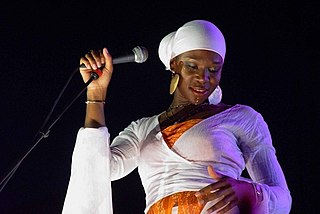A Quote by Terry Tempest Williams
I recently got back from Hiroshima and it was fascinating to me how the Japanese accommodate this paradox. We were talking about this word aware, which on the page looks like "aware," which speaks to both the pain and the beauty of our lives. Being there, what I perceived was that this is a sorrow that is not a grief that one forgets or recovers from, but it is a burning, searing illumination of love for the delicacy and strength of our relations.
Related Quotes
A person is alive only to the degree that he or she is aware. To make the most of life we must constantly strive to be aware of the importance of being aware. Be aware of your senses and use them: So often we are distracted and unconscious of the riches our senses can pour into our lives. We eat food without tasting it, listen to music without hearing it, smell without experiencing the pungency of odors and the delicacy of perfumes, touch without feeling the grain or texture, and see without appreciating the beauty around us.
The artist appeals to that part of our being which is not dependent on wisdom; to that in us which is a gift and not an acquisition-and therefore, more permanently enduring. He speaks to our capacity for delight and wonder, to the sense of mystery surrounding our lives; to our sense of pity, and beauty and pain.
When we are fully conscious and aware, we actually know when we are about to overreact. When we are mindful, we have the mental space and are aware of when our moods change. When we are mindful, we are aware of when our mental models are being challenged and when expectation does not meet with reality, which can trigger an emotional response.
[The artist] speaks to our capacity for delight and wonder, to the sense of mystery surrounding our lives; to our sense of pity, and beauty, and pain; to the latent feeling of fellowship with all creation--and to the subtle but invincible conviction of solidarity in dreams, in joy, in sorrow, in aspirations, in illusions, in hope, in fear?which binds together all humanity--the dead to the living and the living to the unborn.
I have spoken about what we can do as citizens, what we can do as a responsive citizenry, and this is where we have to shatter our complacency and become "active souls,"and be prepared to engage in aware - that personal struggle between our grief and our sorrow. But I don't think we have any choice.
To acknowledge our ancestors means we are aware that we did not make ourselves, that the line stretches all the way back, perhaps to God; or to Gods. We remember them because it is an easy thing to forget: that we are not the first to suffer, rebel, fight, love and die. The grace with which we embrace life, in spite of the pain, the sorrow, is always a measure of what has gone before.
Of four infernal rivers that disgorge/ Into the burning Lake their baleful streams;/Abhorred Styx the flood of deadly hate,/Sad Acheron of sorrow, black and deep;/Cocytus, nam'd of lamentation loud/ Heard on the rueful stream; fierce Phlegethon/ Whose waves of torrent fire inflame with rage./ Far off from these a slow and silent stream,/ Lethe the River of Oblivion rolls/ Her wat'ry Labyrinth whereof who drinks,/ Forthwith his former state and being forgets,/ Forgets both joy and grief, pleasure and pain.
The quality of light by which we scrutinize our lives has direct bearing upon the product which we live, and upon the changes which we hope to bring about through those lives. It is within this light that we form those ideas by which we pursue our magic and make it realized. This is poetry as illumination, for it is through poetry that we give name to those ideas which are, until the poem, nameless and formless-about to be birthed, but already felt.
Another misconception is that if we truly loved someone, we will never finish with our grief, as if continued sorrow is a testimonial to our love. But true love does not need grief to support its truth. Love can last in a healthy and meaningful way, once our grief is dispelled. We can honor our dead more by the quality of our continued living than by our constantly remembering the past.
I think that Russia is very aware that they are on notice when it comes to certain issues. They are very aware that we do want to try and defeat ISIS together, if that's at all possible, along with our allies. But there's no love or anything going on with Russia right now. They get that we're getting our strength back, that we're getting our voice back, and that we're starting to lead again. And honestly, at the United Nations, that's the number one comment I get is they're just so happy to see the United States lead again.
Recently, one friend asked me, "How can I force myself to smile when I am filled with sorrow? It isn't natural." I told her she must be able to smile to her sorrow, because we are more than our sorrow. A human being is like a television set with millions of channels. If we turn the Buddha on, we are the Buddha. If we turn sorrow on then we are sorrow. If we turn a smile on, we really are the smile. We can not let just one channel dominate us. We have the seed of everything in us, and we have to seize the situation in our hand, to recover our own sovereignty.
































